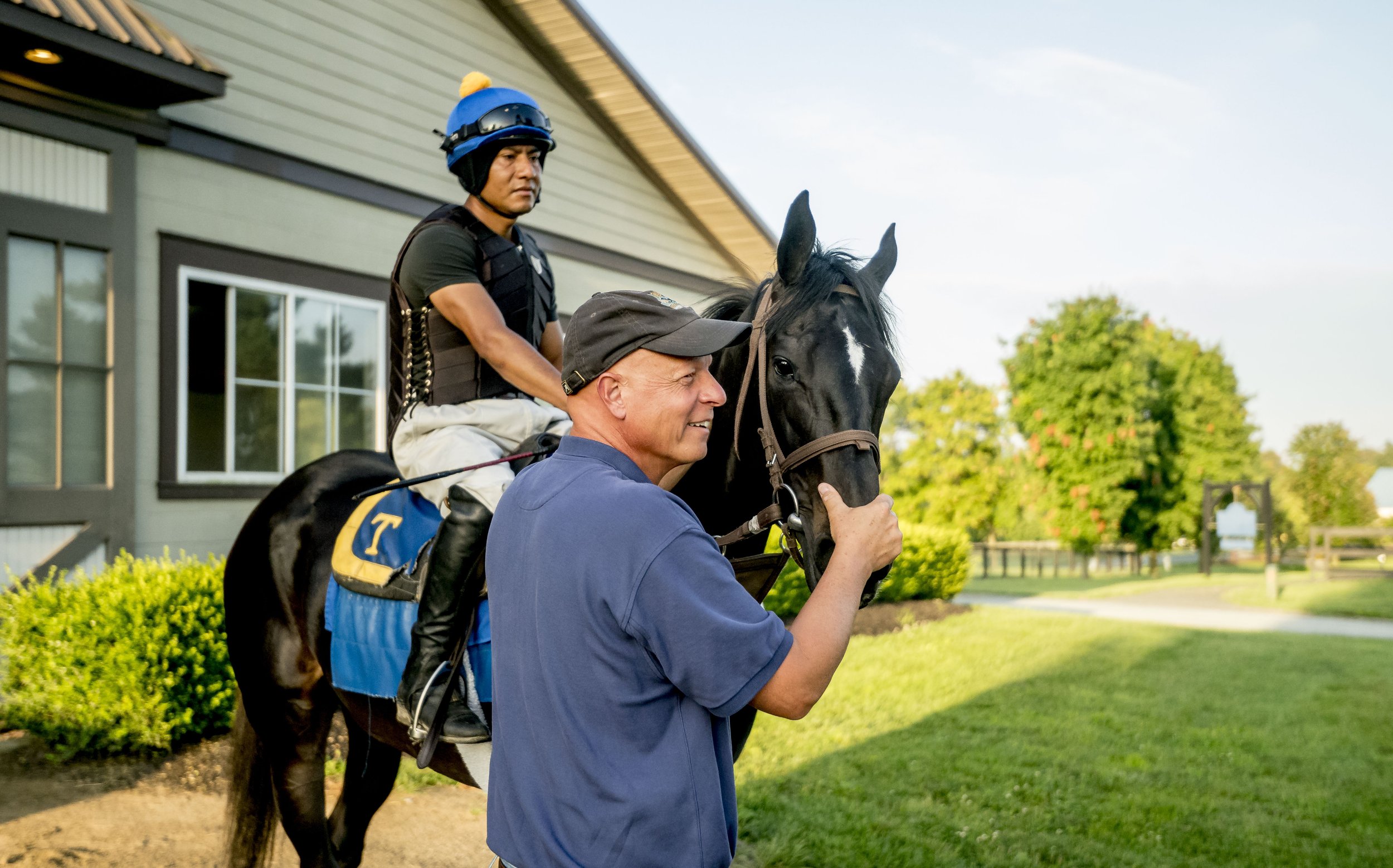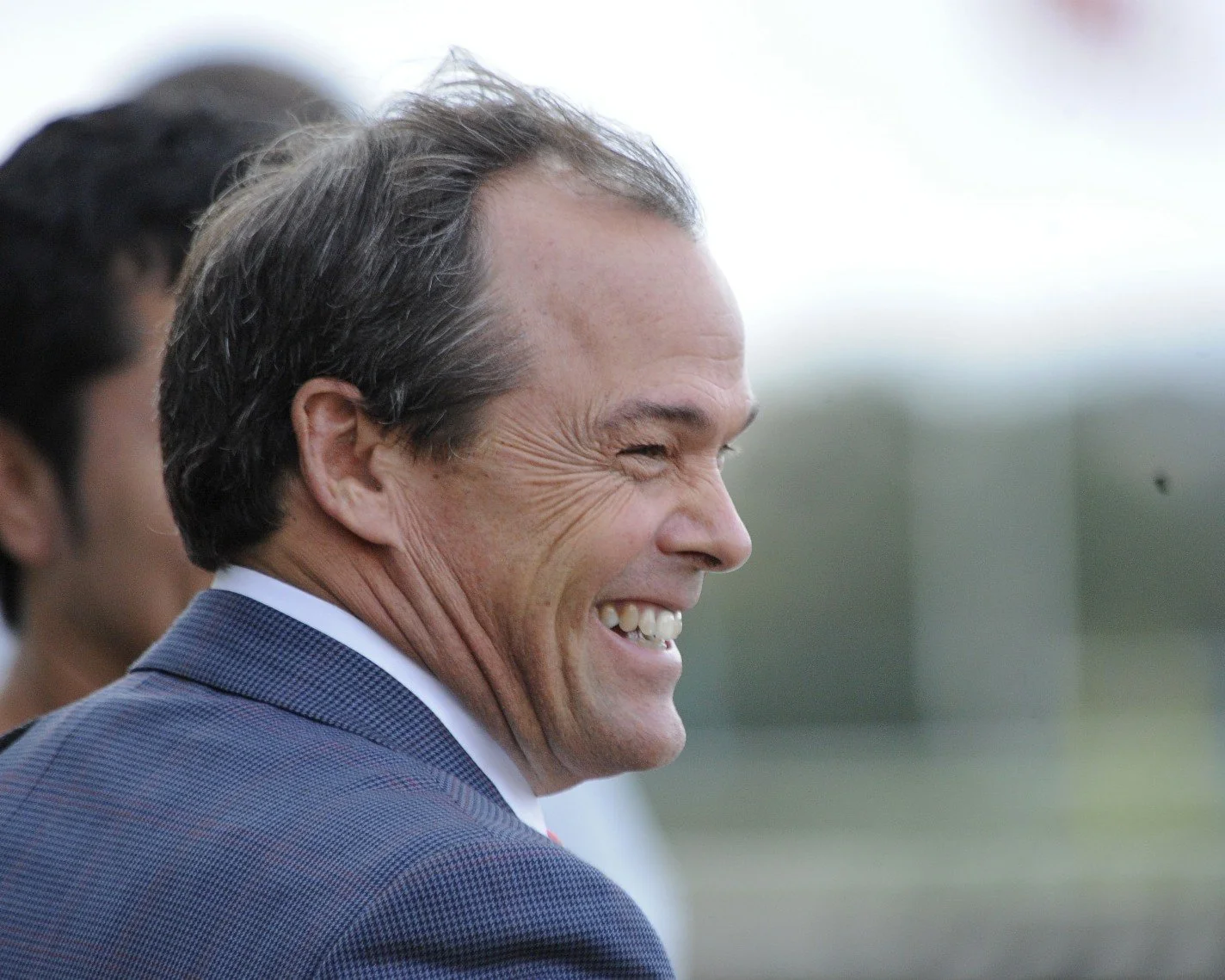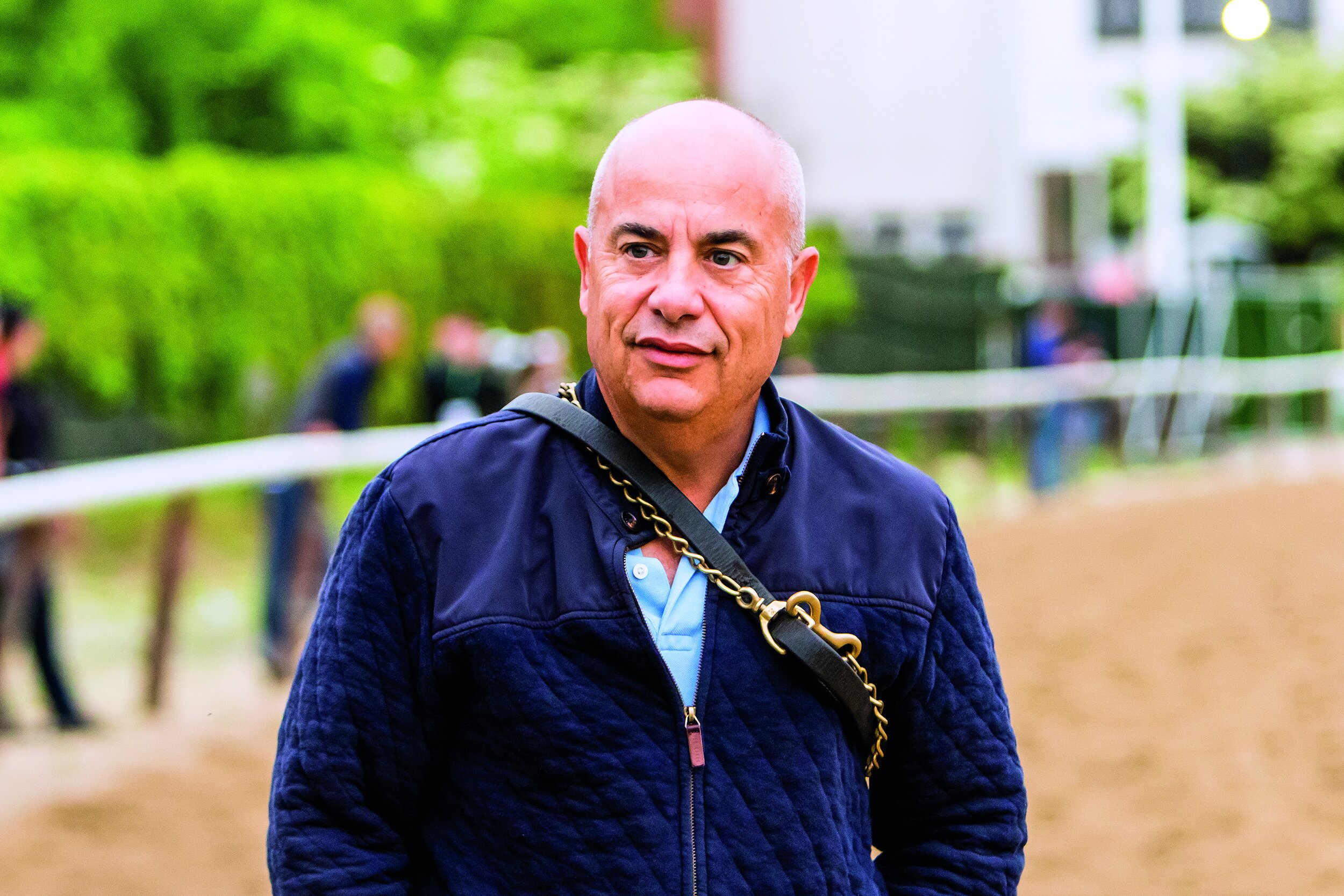#Soundbites - How does the trainer responsibility rule affect you delegating authority to an assistant, exercise rider and/or groom?
By Bill Heller
Linda Rice
You do your best to control as many variables as possible, but, of course, with the trainer responsibility rules and HISA rules, and considering the environment that we are training under at different racetracks and training centers, there are a lot of moving parts. It definitely gives you cause for pause and reasons to worry, but these are the rules that we’ve lived under for a long time, and we do our best and hope everything goes the right way for us.
Jeremiah Englehart
Ultimately, it’s my responsibility. It’s under my name, I’m responsible whether I’m there or not. Communication is always very important in making sure that the people that work on your team understand exactly what you’re saying and what needs to be done and how to do it the right way. Follow the rules. Make sure we’re conforming to the rules that are up there for us. It’s my name on it, but you can’t do everything in the barn. So you have to delegate.
Michael Matz
You just have to be responsible for people’s mistakes when they do make a mistake. That sometimes can be a very difficult situation. Accidents do happen. Sometimes it gets lost in the translation when you’re telling them to do one thing and it just doesn’t get done the way you ask them to do it, whether it’s feeding the horse, whether it’s taking the horse to the races, whether it’s jogging the horse for the veterinarian. This is the hard part. You cannot be lax. You have to make sure that you get it done right. It makes it more difficult, that’s for sure.
Leonard Powell
At the end of the day, the responsibility is one hundred percent ours. You can delegate some, but you can’t delegate 100 percent. So It’s something that we are always aware of. You have to be extremely diligent with the people you’re working with. You have to be on top of it.
Peter Miller
Let me think about it. It depends on the size of your barn. If it’s a small barn, you can do everything yourself, but when you’re running a bigger barn, it’s impossible. So you have to delegate and trust, but at the same time, that can put you at risk. I understand the reasoning for the trainer insurer rule, but it’s unfair in so many instances.
Kelly Breen
I’ve been fortunate enough to have a lot of the same help and they know what the trainer responsibility rule is. In this modern world, you never know what your help is doing. Some of the contamination is eye-opening as to what could be happening to some trainers out there.
Allen Milligan
It just puts me at complete weakness. I try to tell everybody who works for me the same thing: concentrate on what’s going on and make sure something doesn’t happen. But mistakes happen. I’ll never forget at Churchill Downs on Derby Day about 15 years ago, one of the people walking down the backside decided to use one of my stalls for a bathroom. It was a lady in a dress. I caught her coming out of the stall and I said, “There’s a restroom right down there ma’am.” I’ve seen it all.
#Soundbites - What would you do if you weren’t training Thoroughbreds?
By Bill Heller
Mike Trombetta
Mike Trombetta
That’s a heck of a good question. I’ve been doing this so long, I couldn’t tell you. I really don’t know. Construction and demolition, that would be an option. I did that for 15-20 years, but I was doing this at the same time, too. I like this a heck of a lot more.
John Kimmel
John Kimmel
There are two things besides horses I love: snow skiing and deep sea fishing. I’m in Utah, skiing right now. I’m not that far from retirement. I’ve been doing this for 40 plus years. When things tail off, if my business slows down, that’s what I would be doing.
Mark Casse
Mark Casse
I’ve thought about that many times. Probably real estate. I just think it’s a challenge, and the rewards are great. That’s what I would probably do.
Jeremiah Englehart
Jeremiah Englehart
Oh, wow! I’m not sure. I’ve been doing horses since I was so young; I always wanted to be a trainer. I guess I would like to do something with football. I’ve always had a passion for football, maybe coaching or working with kids. I’ve always been a fan in sports. I played sports in high school. That’s something I would like to do.
Craig Dollase
Craig Dollase
I’ve always wanted to pursue sports. I’m a big sports advocate. I’d go for something in the sports world, not physical—something to help people in the sports world. I have a cousin who was actually the trainer for the San Francisco 49ers. I had an in. I could have gone in that direction. But I went to work for my dad, and now I’m a trainer. It turned out pretty good.
Tony Dutrow
Tony Dutrow
You know, at 64, I’m so much still in love with horses and horse racing. There will never be anything else for me. But if I would have never done horse racing, I’d try my hand at real estate. Because that’s a challenge.
David Donk
David Donk
A good question. Later in life, what interests me is management—racing management. But I’m lucky to be doing something now I love.
#Soundbites - Should rules be added to limit or eliminate a jockey’s use of the whip?
#Soundbites
Compiled by Bill Heller
Robbie Davis
Yes. When a horse is beat, he shouldn’t be beaten up. Horses are competitive for the most part. Once they’re tired, you’re not going to get any more out of them. Or if he’s winning by several lengths, he shouldn’t be getting hit. It doesn’t take long to look right, look left and see how far ahead you are. I’ve seen the whip do more trouble than not. You’re not supposed to steer with the whip. That’s what the reins are for. In Canada, they limit the number of hits from the quarter-pole home and you can’t go above your head to whip.
Carla Gaines
It’s interesting. At this stage, the whip is so soft. Here in California, our sticks are as soft as can be. We used to use a stick which was far more severe for decades. It left welts. I rode horses all my life. I think the stick is necessary. You’re sitting on top of an explosive, thousand-pound animal. The stick will help control the horse. A lot of people advocate no stick. I understand that public concern is we’re hitting the horse, but it’s used to control the horse. People who work with other animals know you have to have some sense of control, not abuse. You have to keep them going in a straight line, or they could endanger somebody’s life.
John Velazquez (Hall of Fame Jockey)
We have rules already, but there are different rules. Would uniform rules be nice? Yes. But we talk about it, and nothing happens. It would be nice to see it happen before I retire. About eliminating the whip, absolutely not. It’s a tool we need. We need something to get the horse’s attention. We need it to get horses to go straight. Also, horses need to be encouraged. I’m not concerned about the perception because we use new whips that are much softer, much different now than the ones we used to use.
Jeremiah Englehart
I can see a limited use of the whip to a certain degree. I like what Ramon’s (Dominguez) whip has done. I think from before, the old whips, you would get more whelps. With Ramon’s whip, it will be enough to get a horse’s attention. There are times when the whip has a good use. With a green horse, you’re trying to keep everyone on the racetrack safe. They’re not going to run in a straight line all the time. The use of the whip is necessary. I don’t think eliminating the whip is the answer. There should be panel looking at it with riders involved.
TO READ MORE —
BUY THIS ISSUE IN PRINT OR DOWNLOAD -
Summer 2019, issue 53 (PRINT)
$6.95
Summer 2019, issue 53 (DOWNLOAD)
$3.99
















